Filter by...
Reset all
Publications (136)
Working Paper
pdf
This study explores the social protection and humanitarian emergency nexus in Zambia. Drawing on 25 stakeholder interviews and relevant literature sources, it seeks to (i) identify the social protection needs experienced in the country in the context of different shocks and crises; (ii) elucidate...
Working Paper
pdf
Raindrop in the drought? Vulnerability to climate shocks and the role of social protection in Zambia
Zambia’s reliance on rain-fed agriculture makes its economy and population highly vulnerable to frequent droughts and irregular rainfall. This paper assesses the role of social protection, specifically the Social Cash Transfer (SCT) program, in mitigating drought-induced poverty and consumption...
Working Paper
pdf
This paper exploits several waves of two major nationwide representative surveys to document the impacts of climate shocks on individuals and households in Zambia. We merge these datasets with historical precipitation and temperature data at the district level. First, we show the gendered effects of...
Working Paper
pdf
– Evidence from Zambia's formal sector
Low-income countries face the combined challenges of climate shocks and limited domestic revenue mobilization, yet these issues are rarely studied together. This paper provides new evidence on the impact of climate shocks on firm performance and tax revenue in a low-income country context, using...
Journal Article
– Insights from survey and tax administrative data in Zambia
This study examines how formal firms have been impacted by and recovered from the COVID-19 pandemic, by drawing on two distinct but complementary data sources. This is the first attempt to use both survey and tax administrative data to measure the impact of the pandemic in a developing country. The...
Journal Article
This peer-reviewed research is available free of charge. UNU-WIDER believes that research is a global public good and supports Open Access.
We investigate the behavioural responses of individual taxpayers to changes in marginal personal income tax rates applying empirical bunching methodology to tax administrative data from Zambia over the period from 2014 to 2021. We find evidence for excess bunching at the first kink in the tax...
Report
pdf
This report documents MicroZAMOD, the SOUTHMOD model developed for Zambia. This work was carried out by Zambia Institute for Policy Analysis & Research (ZIPAR) in collaboration with the project partners. The results presented in this report are derived using MicroZAMOD version 2.16, which is part of...
Working Paper
pdf
– Comparing the performance of universal basic income in Uganda and Zambia during COVID-19
The debate over universal basic income (UBI) has gained traction in the developing world in recent years. We analyse the effects of four UBI schemes on poverty and inequality measures during normal times and times of crisis in Uganda and Zambia. We use static microsimulation models and nationally...
Working Paper
pdf
This paper explores two policy interventions in Zambia, a minimum wage hike in 2018 and an upward revision in the first kink in the progressive income tax schedule in 2017, to examine and compare the impact of minimum wage and tax kink changes on wages and the earnings distribution in the formal and...
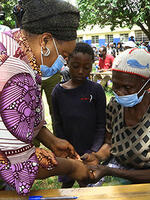
The Zambian government wants to reduce poverty by 20% by 2030. To make this happen, the government reformed their national cash transfer programmes. But what was the potential impact? In 2021, our MicroZAMOD team conducted an assessment—recommendations of which have been adopted at the highest level...
Working Paper
pdf
– Simulation results for Zambia
The COVID-19 pandemic increased public debt and changed the income distribution in many countries. We use a numerical simulation approach to derive optimal nonlinear marginal tax rates for the pre-crisis and crisis periods. We contribute to the literature by examining optimal tax rates numerically...
Working Paper
pdf
– Evidence from Zambian tax administrative data
We investigate the behavioural responses of individual taxpayers to changes in marginal personal income tax rates applying empirical bunching methodology to tax administrative data from Zambia over the period from 2014 to 2021. We find evidence for excess bunching at the first kink in the tax...
Working Paper
pdf
– A comparative perspective
We examine the distributional effects of the COVID-19 pandemic and associated tax-benefit measures in seven sub-Saharan African countries, focusing on the onset of the crisis.We evaluate impacts on disposable incomes, considering variations across income groups; assess the effectiveness of tax...

Across Kenya, Malawi, and Zambia, political candidates often attempt to buy the votes of the most socio-economically deprived communities. But new research from Prisca Jöst and Ellen Lust argues that social cohesion in these communities is instrumental in determining the levels of support for...
Report
pdf
This report documents MicroZAMOD, the SOUTHMOD model developed for Zambia. This work was carried out by Zambia Institute for Policy Analysis & Research (ZIPAR) in collaboration with the project partners. The results presented in this report are derived using MicroZAMOD version 2.15 running on...

Zambia is putting in place fiscal measures to improve the efficient collection of domestic revenue to finance social and public infrastructure. This analysis shows how much more revenue can be accumulated if tax evasion was at the bare minimum.Tax gap describes the share of the potential tax revenue...

Along with several other African countries, Zambia has introduced a withholding system for value-added tax (VAT) to improve revenue collection and compliance. Even though VAT withholding policies are applied in several countries in Africa and similar industry-specific policies in Europe, empirical...

– What Zambia is doing right
Over half of Zambia’s population lived below the national poverty line in 2015. In rural areas, where 89% of households are engaged in agriculture, the poverty rate was even higher, at 77% of the population. The government runs several programmes of financial support for farmers. Some provide...
Working Paper
pdf
– A bottom-up approach based on audit assessments
Assessing tax gaps—the difference between the potential and actual taxes raised—plays a vital role in achieving positive domestic revenue objectives through improved and reformed taxation. This is particularly pertinent for growth outcomes in developing countries. This study uses a bottom-up...
Working Paper
pdf
Improving tax collection is essential if developing economies are to avoid over-reliance on external donor funds and loans. Revenue authorities in the Global South have recently adopted new policy tools to improve domestic revenue mobilization through taxes.One such new policy is a withholding...
Working Paper
pdf
We study the effectiveness of social protection benefits in reducing income and consumption poverty in five sub-Saharan African countries—Ghana, Mozambique, Tanzania, Uganda, and Zambia—in normal times and times of widespread economic crisis. Using tax–benefit microsimulation models with...
Working Paper
pdf
– A microsimulation approach
This paper examines the distributional impacts of agricultural policies versus those of cash transfers using a tax–benefit microsimulation model for Zambia for the policy year 2020. The analysis also considers the behavioural impacts of input subsidies and social cash transfers. The results indicate...
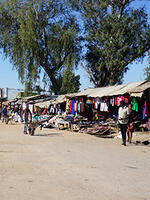
– Evidence from tax administrative and survey data in Zambia
Like most other countries, the government of Zambia introduced restrictions to control COVID-19, which considerably curtailed normal economic activity. A new WIDER and World Bank working paper, a multi-institutional collaboration of UNU-WIDER, the World Bank, the Zambia Revenue Authority and the...
Working Paper
pdf
– Insights from survey and tax administrative data in Zambia
This paper examines how formal firms have been impacted by and recovered from the pandemic by drawing on two distinct but complementary data sources. This is the first attempt to use both survey and tax administrative data to measure the initial decline and subsequent recovery of firm sales and...
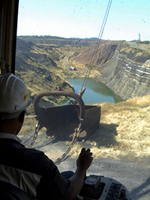
– Policy options for a sustainable fiscal regime
This brief provides concrete proposals on how Zambia's government could create a robust fiscal regime to achieve a steady flow of mineral revenue and encourage increased local participation in mining — while ensuring environmental sustainability.Zambia has had many mineral tax regimes and mining...
Report
pdf
View the latest MicroZAMOD country report here. This report documents MicroZAMOD, the SOUTHMOD model developed for Zambia. This work was carried out by Zambia Institute for Policy Analysis & Research (ZIPAR) in collaboration with the project partners. The results presented in this report are derived...
Technical Note
pdf
Agricultural subsidies may have significant productive and distributional consequences, and policy-makers need to be able to assess these impacts as a part of the overall tax and benefit policy. Microsimulation models offer a tool for such analysis also in developing countries, but their coverage...

Millions of Africans lost their jobs as a result of the coronavirus pandemic, but state social security systems were of little help to people who lost their income.This is the conclusion of a study conducted by the United Nations University World Institute for Development Economics Research, UNU...
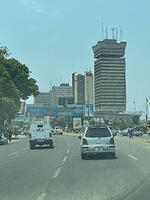
– New perspectives on travelling for research
Working for an international organisation presents a host of challenges, given the vast nature of tasks that one must surmount in a fast paced and changing environment. It might be a roller coaster, but also satisfying by providing many worthwhile experiences. The latter was my sensation during my...
Working Paper
pdf
– Policy options for a sustainable fiscal regime
Zambia has changed its mineral tax regime repeatedly during the past decades in a bid to raise mineral revenue, but with only modest success. This paper looks at what the country needs to do to create a mining fiscal regime that could sustain operations, boost output, and raise revenues without...
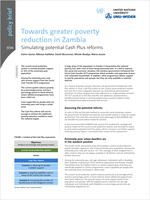
– Simulating potential Cash Plus reforms
A large share of the population in Zambia is living below the national poverty line, with most of them being extremely poor. In a bid to improve the social and economic situation, the Zambian government introduced the Social Cash Transfer (SCT) programme which provides cash payments to poor and...
Working Paper
pdf
– Simulating potential Cash Plus reforms using MicroZAMOD
A large share of the population in Zambia is living below the national poverty line. To reduce poverty, in 2019, the government initiated the Cash Plus reform, which aims to build on the existing Social Cash Transfer as a floor benefit with additional benefits to take account of the...

In summer 2020 the SOUTHMOD team set out, with partners, to analyse the impact of government policies on protecting households from getting poorer and avoiding societies from becoming more unequal. Now we are releasing a cross-country comparative study that analyses the distributional effects of the...

Zambia’s economic growth has been flattening over the past decade. In 2020 economic prospects further worsened, following the onset of the pandemic, rising debt, and the Eurobond default. In this unprecedented scenario, there is the need to examine impacts on welfare and the mitigation role taxes...
Working Paper
pdf
This paper analyses the distributional effects of the COVID-19 pandemic and related tax-benefit measures in 2020 in a cross-country comparative perspective for five African countries: Ghana, Mozambique, Tanzania, Uganda, and Zambia. We first estimate the impact of the crisis on disposable incomes...
Technical Note
pdf
This note has set out several data processes that have been undertaken using the income data in dataset(s) that underpin SAMOD. Section 1 describes various data-cleaning steps that were undertaken when preparing the LCS 2014/15 as an underpinning dataset for SAMOD. Part 2 elaborates on the process...
Working Paper
pdf
– Receiving more, expecting less?
Are candidates who hand out clientelistic goods at election time less likely to provide services once they take office? This paper examines the poor’s expectations of future service provision by candidates who hand out money and other goods versus those who do not. We hypothesize that the poor’s...
Working Paper
pdf
– Imputing employment income in Tanzania and Zambia
The quality of data on employment income is explored using Tanzanian and Zambian household survey datasets. The extent of missing and implausible income data is assessed and four different methods are applied to impute missing or implausible values. The four imputation methods are also applied to...

– Blueprint, experiences, and outcomes
East Asia’s successful experience in accelerating the process of industrial development with SEZs paved way for the use of SEZs as policy instruments in Africa. In southern Africa, Zambia and South Africa instituted SEZs in legal and institutional frameworks in the 2000s as mechanisms for catalysing...
Working Paper
pdf
– The case of Zambia and South Africa
The successful use of special economic zones as economic tools for export-led industrial development in East Asia propelled a wave of similar initiatives across Africa. In Southern Africa, Zambia and South Africa instituted special economic zones in their respective legal and institutional...
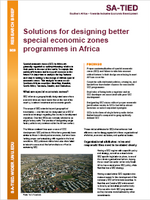
Special economic zones (SEZ) in Africa are generally regarded as underperforming relative to their peers in the rest of the world. To explain this underperformance and to support success in the future it is important to analyse the key features and what is lacking in the design of African special...
Working Paper
pdf
Low levels of broadband penetration combined with poor quality of services present a challenge to growth and development in the Southern African Development Community (SADC). This paper performs a comparative analysis of the competitive dynamics of telecommunications markets in four SADC countries...
Working Paper
pdf
– Is success influenced by design attributes?
Special economic zones (SEZs) in Africa are generally regarded as underperforming relative to their peers in the rest of the world. This study focuses on the design features of the SEZ in Africa that may help explain this underperformance. Literature was reviewed to identify the key design...

From the book:
Mining for Change
Working Paper
pdf
– A case study of the maize-milling machinery value chain in South Africa and Zambia
This working paper is the fourth in a series that forms part of the project ‘Southern Africa – Towards Inclusive Economic Development’, a three-year partnership between UNU-WIDER and the South African government aimed at generating a better understanding of regional value chains and supporting...

View the latest MicroZAMOD country report here. This report documents MicroZAMOD, the SOUTHMOD model developed for Zambia. This work was carried out by Zambia Institute for Policy Analysis & Research (ZIPAR) in collaboration with the project partners. in the scope of the SOUTHMOD project. The...
Journal Article
This peer-reviewed research is available free of charge. UNU-WIDER believes that research is a global public good and supports Open Access.
Part of Journal Special Issue
Bioenergy in Southern Africa
Journal Article
This peer-reviewed research is available free of charge. UNU-WIDER believes that research is a global public good and supports Open Access.
Part of Journal Special Issue
Bioenergy in Southern Africa
Journal Article
This peer-reviewed research is available free of charge. UNU-WIDER believes that research is a global public good and supports Open Access.
Part of Journal Special Issue
Bioenergy in Southern Africa

– A tax-benefit microsimulation
In an attempt to reduce poverty and vulnerability in a sustainable and cost-effective way, in 2003 the Zambian Government introduced a social cash transfer (SCT) scheme. However, a recent review of Zambia’s social assistance system revealed that this scheme provided insufficient coverage to many...
Working Paper
pdf
– A tax benefit microsimulation analysis based on MicroZAMOD
This paper assesses the effects on poverty and inequality of the alternative targeting approaches that Zambia’s Social Cash Transfer programme could take as its expansion continues during the period of the country’s Seventh National Development Plan (2017–21). It further assesses the domestic...
Working Paper
pdf
The construction sector plays a critical role in delivering quality infrastructure, which in turn influences the use of natural resource revenues towards achieving structural change and industrial development. We use industrial organization and political economy lenses to describe and understand the...
Working Paper
pdf
This paper is about understanding the cycle of global copper price booms and busts over Zambia’s economic history. We explore how the mining industry has been managed, and wider economic management during boom periods. We find that successive Zambian governments did not use copper revenues to...
Journal Article
This peer-reviewed research is available free of charge. UNU-WIDER believes that research is a global public good and supports Open Access.
Part of Journal Special Issue
Female Autonomy and Women’s Welfare
Working Paper
pdf
– Local content in Zambia—a faltering experience?
This paper traces the role of local content in Zambia’s mining sector in supporting industrialization and economic diversification. It assesses productive linkages and manufacturing competitiveness during import-substitution industrialization and post-1991 liberalization and privatization, and the...
Journal Article
This peer-reviewed research is available free of charge. UNU-WIDER believes that research is a global public good and supports Open Access.
– Domestic policies, corporate strategies and regional dynamics
Part of Journal Special Issue
Regional Growth Opportunities
Journal Article
This peer-reviewed research is available free of charge. UNU-WIDER believes that research is a global public good and supports Open Access.
Part of Journal Special Issue
Regional Growth Opportunities
Journal Article
This peer-reviewed research is available free of charge. UNU-WIDER believes that research is a global public good and supports Open Access.
– Corporate strategies, investments and agro-industrial policies
Part of Journal Special Issue
Regional Growth Opportunities
Journal Article
This peer-reviewed research is available free of charge. UNU-WIDER believes that research is a global public good and supports Open Access.
Part of Journal Special Issue
Regional Growth Opportunities
Journal Article
This peer-reviewed research is available free of charge. UNU-WIDER believes that research is a global public good and supports Open Access.
Part of Journal Special Issue
Regional Growth Opportunities
Journal Special Issue
This peer-reviewed research is available free of charge. UNU-WIDER believes that research is a global public good and supports Open Access.
This issue contains seven articles addressing the major changes underway in the integration of economies in southern Africa. This special issue is based on the UNU-WIDER project 'Regional growth and development in Southern Africa'. This project aims to develop, in conjunction with important research...
Working Paper
pdf
In 2008, the Government of Zambia reformed its mining tax regime for large-scale copper mines through a unilateral legislative change. The country went from having one of the lowest average effective tax rates and government take to be above the average. We focus on a particularly controversial...
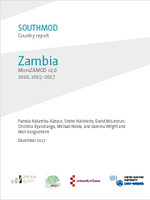
View the latest MicroZAMOD country report here. This report documents MicroZAMOD, the SOUTHMOD model developed for Zambia. This work was carried out by Zambia Institute for Policy Analysis & Research (ZIPAR) in collaboration with the project partners. in the scope of the SOUTHMOD project. The...

View the latest MicroZAMOD country report here. This report documents MicroZAMOD, the SOUTHMOD model developed for Zambia. This work was carried out by Zambia Institute for Policy Analysis & Research (ZIPAR) in collaboration with the project partners. in the scope of the SOUTHMOD project. The...
Working Paper
pdf
– The possibilities and the realities
The paper discusses the practical possibilities of achieving increased downstream processing and the policies that are commonly used for this purpose. It reviews the reasons why forward vertical integration is not always an optimal choice for extractive industry companies. It finds little support...
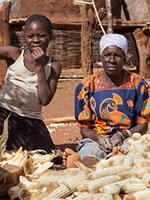
– Growing the animal-feed-to-poultry regional value chain
In 2016 the South African poultry sector faced intense pressure from two sides in the form of much higher input costs and increased imports of low-priced chicken from the European Union and the USA. Poultry firms have called for increased protection against imports. Instead of taking a short-term...
Working Paper
pdf
In this paper, we examine the impact of soil conservation adoption on gender-specific resource allocations within households in Zambia. The extension of funding of conservation farming (CF) training sessions in 2007 in specific districts in Zambia provides variation in CF takeup. We use this...
Working Paper
pdf
World biofuel production has been increasing to improve energy security and mitigate global warming. Southern Africa’s bioenergy demand could increase with South Africa’s planned fuel blending mandates, triggering increased demand for feedstocks and agricultural land. Ensuring sustained production...
Working Paper
pdf
– Theorizing from Zambia
Across the world, people in urban rather than rural areas are more likely to support gender equality. To explain this global trend, this paper engages with geographically diverse literature and comparative rural–urban ethnographic research from Zambia. It argues that people living in interconnected...
Working Paper
pdf
Rapid population growth, urbanization, and income growth are triggering increased demand for high-value agricultural products across Southern Africa with scope for gains from trade and regional integration. We analyse the animal feed to poultry value chain in Zambia focusing on the industry...
Working Paper
pdf
– Implications for local suppliers in Zambia
The last two decades have seen rapid economic growth in Zambia and the proliferation of foreign supermarket chain stores. However, this growth has translated into neither significant job creation nor significant poverty reduction. Furthermore, while the expansion of supermarket chains in Zambia has...
Working Paper
pdf
Given likely increases in biofuel demand across Southern Africa, we identify suitable production models in Zambia for the Southern African market. This is crucial given, on the one hand, the problems of contract failure and transaction costs that plague outgrower models in Southern Africa and, on...
Working Paper
pdf
– Competition in road transportation of perishable goods between Malawi, South Africa, Zambia, and Zimbabwe
Rapid urbanization and rising income levels in Southern Africa have increased the consumption of perishable and processed food products. This paper relies primarily on firm-level interview data to assess competition and bottlenecks in transporting time-sensitive perishable products across borders...
Working Paper
pdf
– Political economy, trade, and policy environment
Expansion of biofuels production and consumption at the regional and national levels relies on both supportive energy prices and policy interventions. Despite enthusiasm for policy interventions to stimulate biofuel production in Southern African countries in the mid-2000s, the years since have seen...
Working Paper
pdf
The need for energy security and climate change mitigation have increased blending mandates worldwide; in Southern Africa, demand for biofuels could increase following South Africa’s planned blending mandates. However, land constraints limit local industry expansion, with demand likely to be met in...
Working Paper
pdf
– Competition in road transportation between Malawi, Mozambique, South Africa, Zambia, and Zimbabwe
Efficient transport links are critical to enhancing the integration of markets in Southern Africa. This paper assesses the structure of markets, competition, and prices and costs of road transportation between urban hubs in Malawi, Mozambique, South Africa, Zambia, and Zimbabwe. Key findings are...
– Regional integration in southern Africa through supermarkets
Walk into any supermarket and you will find a mix of products to stock the kitchen. It’s easy to assume that many of the goods on offer are sourced locally and from nearby countries. In the region of southern Africa, however, imported goods are often shipped from another continent instead of...
Working Paper
pdf
The ‘affordability’ of new or expanded social protection programmes depends on more than an assessment of the fiscal costs or the poverty-reducing or developmental benefits. Diverse international organizations have shown that programmes costing less than or about 1 per cent of GDP have substantial...
Working Paper
pdf
Given unsuccessful experiences to date in establishing large-scale investments for biofuels in Zambia, this paper explores the social constraints that may hinder future efforts to use the same models. The author reviews the legal framework that has guided the establishment of most agricultural...
Working Paper
pdf
– The view from Zambia
Mining is the largest sector of the Zambian economy but, as has been the case elsewhere, the relationship between mining companies and their host communities has been fractious, without a clear path towards sustainability. The severe social, economic, and environmental impacts of mining have been...
Working Paper
pdf
It is estimated that biofuel demand in South Africa will increase to 1,550 million litres by 2025 following the introduction of mandatory blending rates in 2014. Land and water constraints, however, limit domestic supply ability. Zambia, due to abundance of land, suitable climate, supportive...
Working Paper
pdf
– The case of the animal feed to poultry value chain
This paper considers findings of studies analysing the development of a regional animal feed to poultry value chain in southern Africa (Botswana, South Africa, Zambia, Zimbabwe). The southern African regional poultry value chain is underdeveloped, although important changes include investments by...
Working Paper
pdf
– A comparison of findings from South Africa, Botswana, Zambia, and Zimbabwe
Since the early 2000s, there has been rapid growth in the number and spread of supermarkets in southern Africa. This paper is a synthesis of key findings of studies undertaken in Botswana, South Africa, Zambia, and Zimbabwe on the expansion of supermarkets and the impact this has had on suppliers...
Working Paper
pdf
This paper examines the rise of the social protection agenda in Zambia, and demonstrates that this has two alternative drivers: shifting dynamics within Zambia’s political settlement and the promotional efforts of a transnational policy coalition. We compare the cases of social cash transfers and...
Research Brief
pdf
Transport and logistical efficiencies are critical factors in the competitiveness of regional value producers. The relatively high cost of regional transport in Southern Africa has impacted suppliers’ cost-competitiveness. Reducing the cost of bringing products into main markets is one way of...
Working Paper
pdf
One key element in the reduction of poverty and (in Latin America) inequality has been the achievement of greater fiscal equity; we analyse one key part of this process, which is the earmarking of portions of tax revenue to be spent on progressive public expenditures such as social protection...
Blog
The UNU-WIDER project on extractives for development seeks to examine how poor and middle-income countries can best use their natural resource wealth to promote development. It is well understood that minerals, metals, oil or gas (collectively known as ‘extractives’) have for some years been...
Working Paper
pdf
– National trajectories and regional integration
This paper explores the linkages between the national systems of innovation of Botswana, South Africa, Zambia, and Zimbabwe and their respective mineral extraction and mineral processing value chains, including input industries. Our analysis reveals four individual national systems of innovation...
Working Paper
pdf
– A comparative analysis of policy frameworks in three Southern African countries
This paper explores the potential to leverage large-scale mineral extraction in Botswana, Zambia, and Zimbabwe to foster mineral beneficiation and upstream industries. The evidence suggests that the success or failure of a resource-based industrialization approach is country and sector specific...
Working Paper
pdf
– Challenges and solutions
In this paper, we analyse which channels influence individual preferences concerning the choice of the official language in Zambia. We develop a theoretical framework, which is tested using data on elicited beliefs about the effects of changes in Zambia's language policy on schooling outcomes...
Blog
– Challenging the conventional wisdom
It is widely accepted in recent work in economics and political science that ethnic diversity has a negative impact on the provision of public goods such as health and education. Indeed, the conventional wisdom holds that a negative relationship is so well-established empirically that research...
Journal Article
This peer-reviewed research is available free of charge. UNU-WIDER believes that research is a global public good and supports Open Access.
– Evidence of a Subnational “Diversity Dividend”
The “diversity debit” hypothesis – that ethnic diversity has a negative impact on social, economic, and political outcomes – has been widely accepted in the literature. Indeed, with respect to public goods provision – the focus of this article – the conventional wisdom holds that a negative...
Journal Article
This peer-reviewed research is available free of charge. UNU-WIDER believes that research is a global public good and supports Open Access.
– Zambezi basin and South Africa
Part of Journal Special Issue
Prospects for Renewable Energy in Africa
Working Paper
pdf
In this paper, we apply the first-order dominance (FOD) approach to assessing multidimensional welfare to analyse multidimensional poverty in Zambia in 1996, 2006, and 2010. In addition to evaluating welfare across time and space, we extend the methodology to evaluate welfare by rural agricultural...
Working Paper
pdf
– A feasibility study
This study presents the findings from a feasibility study on the potential for developing a static tax-benefit microsimulation model for Zambia. The paper focuses on the details of the tax-benefit system and possible data sources, building on information collected in the initial scoping study of all...
Working Paper
pdf
– Cases from the Zambezi River Basin
We consider the interplay of climate change impacts, global mitigation policies, and the interests of developing countries to 2050. Focusing on Malawi, Mozambique, and Zambia, we employ a structural approach to biophysical and economic modeling that incorporates climate uncertainty and allows for...
Working Paper
pdf
– Changing models of retailing and the implications for local supplier capabilities in South Africa, Botswana, Zambia, and Zimbabwe
Over the past two decades, southern African countries have experienced rapid growth in the number and spread of supermarkets. Several factors have been attributed to this growth, including increasing urbanization, increased per capita income, the rise of the middle class, economies of scale and...
Journal Article
This peer-reviewed research is available free of charge. UNU-WIDER believes that research is a global public good and supports Open Access.
Part of Journal Special Issue
The Political Economy of Africa's Emergent Middle Class
Journal Article
This peer-reviewed research is available free of charge. UNU-WIDER believes that research is a global public good and supports Open Access.
– A Study of Impacts and Adaptations in Malawi, Mozambique, and Zambia
Part of Journal Special Issue
Climate Change and the Zambezi River Valley

The articles in this special issue set forth a set of technical contributions that will improve the understanding of the impacts of climate change in developing countries. They are drawn from the Development Under Climate Change (DUCC) project carried out by UNU-WIDER of which the countries of the...
Research Brief
pdf
Aid projects that specifically target women tend be better at increasing gender equality than those that mainstream gender. The gender gap can be narrowed through public works that focus on providing decent employment for women as well as training and micro-finance for female entrepreneurs. The lack...
Working Paper
pdf
– Further Evidence of a Subnational ‘Diversity Dividend’
The hypothesis that ethnic diversity has a negative impact on public goods provision is widely accepted. Notably, most work on this issue fails to distinguish adequately between national versus subnational governance. We find that subnational empirical evidence in particular is inconclusive, and...
Working Paper
pdf
– A First Order Dominance Approach
In this paper we make welfare comparisons among districts of Zambia using multidimensional well-being indicators observed at the household level using the first order dominance approach developed by Arndt et al. in 2012. This approach allows welfare comparisons without making any assumptions about...
Book Chapter
From the book:
Food Price Policy in an Era of Market Instability
Research Brief
pdf
Democracy assistance and donor support have been key in fostering a new type of civil society, dominated by NGOs, the legal community and churches. The bulk of donor funding to Zambia is channelled to the executive through budget support, this has the potential to increase the concentration of power...
Working Paper
pdf
– Implementation of the New Aid Effectiveness Agenda in Health and Education in Zambia
There is a growing interest in the debate on aid effectiveness for assessing the impact of aid not only on economic growth and poverty reduction, but also on intermediate outcomes such as health and education. This paper reviews evidence from recent in-depth country work on the impact of government...
Working Paper
pdf
– Impacts and Adaptations for the Zambezi River Valley
The African Development Bank has called for US$40 billion per year over the coming decades to be provided to African countries to address development issues directly related to climate change. The current study addresses a key component of these issues, the effect of climate change on the road...
Displaying 112 of 136 results
 Join the network
Join the network


